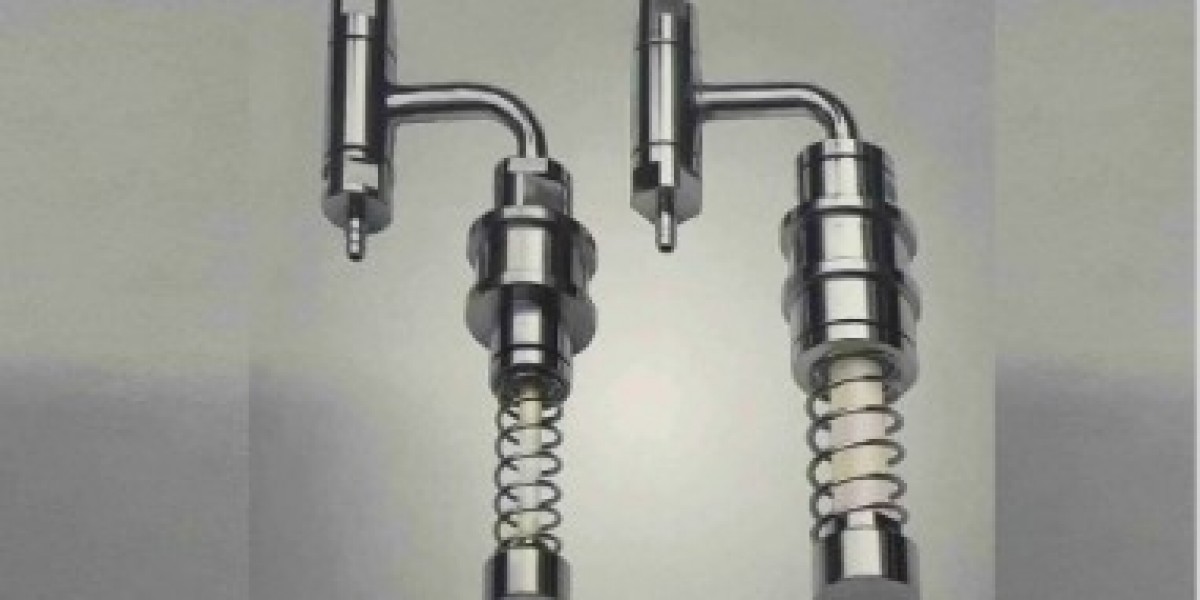Pumps are integral to countless industries, playing a vital role in fluid transportation and circulation. While there are various types of pumps available, one that stands out for its exceptional performance is the ceramic pump. In this blog post, we will delve into the mechanics of a ceramic pump, exploring its working principles and highlighting the advantages it offers over traditional pump designs.
Understanding Ceramic Pump Technology
Ceramic pumpsutilize advanced materials and innovative design principles to deliver superior performance and longevity. Unlike traditional pumps that use metal or plastic components, ceramic pumps feature a construction primarily composed of high-quality ceramics. This unique composition allows them to excel in challenging applications that require high pressure, high temperature, and corrosive fluid handling.

Ceramic Components
The key to the ceramic pump's efficiency lies in its ceramic components, including the impeller, volute, and bearings. These components are typically made from materials like silicon nitride or alumina, which exhibit exceptional mechanical properties such as high hardness, heat resistance, and chemical stability. The use of ceramics ensures minimal wear and tear, allowing the pump to operate at peak performance for extended periods.
Enhanced Efficiency
Ceramic pumps are renowned for their enhanced efficiency compared to traditional pumps. The ceramic components reduce friction and wear, resulting in reduced energy consumption and increased overall efficiency. Additionally, the high thermal conductivity of ceramics helps dissipate heat efficiently, preventing overheating and further improving energy efficiency.
Resistance to Corrosion and Erosion
Corrosive fluids can wreak havoc on traditional pumps, leading to frequent breakdowns and costly repairs. However, ceramic pumps excel in handling corrosive fluids due to the inherent resistance of ceramics to chemical attack. The durable ceramic components can withstand aggressive chemicals, acids, and alkaline solutions, ensuring long-lasting reliability even in the harshest operating conditions.

High Pressure and Temperature Handling
Certain industries require pumps capable of handling high pressures and temperatures. Ceramic pumps are uniquely suited for such demanding applications. The robustness of ceramic materials allows these pumps to withstand extreme pressure differentials and maintain structural integrity even at elevated temperatures. This makes them ideal for applications in industries like oil and gas, chemical processing, and power generation.
Reduced Maintenance and Downtime
Ceramic pumps offer significant advantages in terms of maintenance and downtime reduction. The inherent hardness and wear resistance of ceramics reduce the need for frequent part replacements, resulting in lower maintenance costs and extended operational lifespans. Moreover, the resistance to erosion and corrosion minimizes the risk of pump failure, leading to reduced downtime and increased productivity.
Noise and Vibration Reduction
Traditional pumps often produce significant noise and vibration during operation, leading to discomfort and potential damage to surrounding equipment. Ceramic pumps, on the other hand, exhibit excellent damping properties, reducing noise and vibration levels. This makes them well-suited for applications in noise-sensitive environments like laboratories, hospitals, and residential areas.

Conclusion
Ceramic pumps represent a significant advancement in pump technology, offering numerous advantages over traditional pump designs. By harnessing the exceptional properties of ceramics, these pumps deliver enhanced efficiency, resistance to corrosion and erosion, high-pressure and temperature handling, reduced maintenance and downtime, and noise and vibration reduction. Whether in industries such as chemical processing, oil and gas, or power generation, ceramic pumps prove to be reliable workhorses, ensuring optimal fluid transportation and circulation. Embrace the power of ceramic pump technology and experience the efficiency and durability it brings to your fluid handling applications.
Ascendis a professional manufacturer in the field of precision machinery, specializing in the manufacturing of high-performance ceramic products such as the silicon carbide ceramic plungers, mechanical parts processing, and component processing. With over 50 sets of production equipment, we are able to provide various precision technical ceramic products to our clients.
Our dispensing systems have served most of the top 30 lithium battery companies, providing reliable and efficient solutions for their production processes.
If you are interested in our products,welcome to contact us.
Email:sales@ascendgz.com







